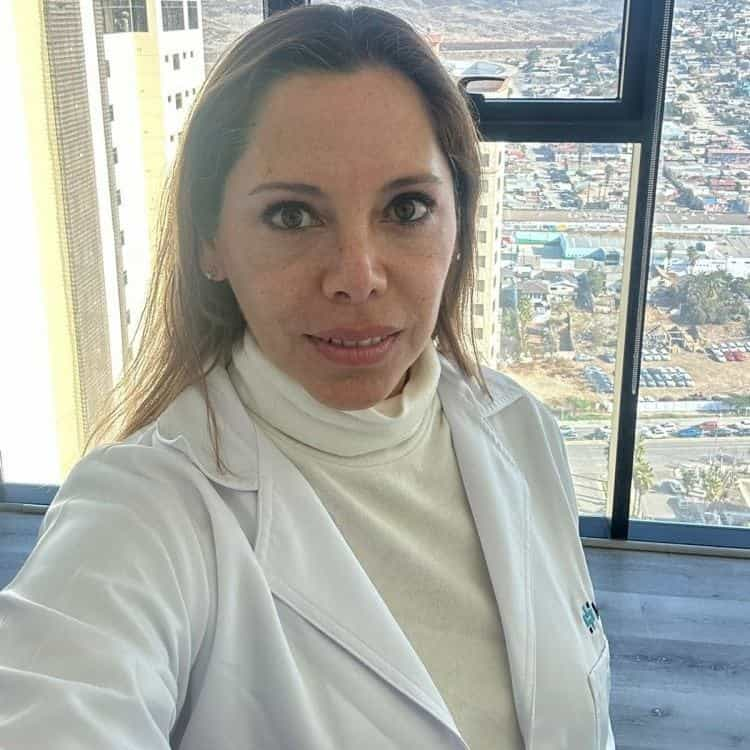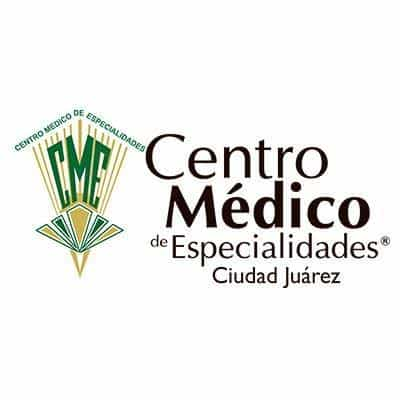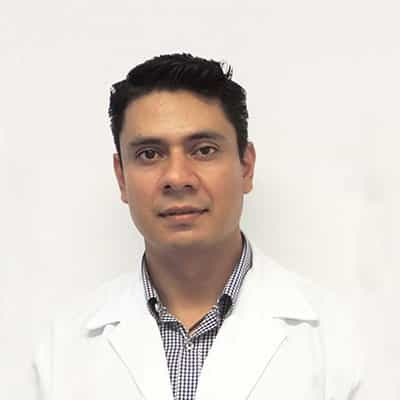What treatment
10+ Highly Rated Stereotactic Radiotherapy Clinics in Mexico
Reach Out to These Certified Stereotactic Radiotherapy Clinics List in Mexico Loved by Patients!
Limphocare by Limphocite - Immunotherapy for Cancer in Mexico
Overview
Limphocare offers advanced immunotherapy for cancer in Mexico and autoimmune conditions, providing holistic, effective care with fewer side effects.
Read more details
Aesthetic and Oncologic Face, Head and Neck Clinic and OR
Overview
Discover AOFHN Clinic and OR in Tijuana, Mexico, specializing in plastic surgery & oncology. Services include rhinoplasty, facelift, Botox & cancer treatment.
Read more detailsCentro Medico de Especialidades de Ciudad Juarez
Overview
Centro Medico de Especialidades in Ciudad Juarez, Mexico offers expert care in Plastic Surgery, General Surgery, Orthopedics, Internal Medicine, and Urology.
Read more detailsNortheastern Institute of Oncology
Overview
Northeastern Institute of Oncology, located in Nuevo León, Mexico, is a modern medical facility focused on providing customized treatment programs for each individual, combining integrated treatment options and the latest technological advances. Patients coming here benefit from top medical care, highly qualified and experienced medical staff and highly successful medical procedures.
Read more detailsDiscover your treatment options with a free, no-obligation quote!
Get your quote now!Proctologic Center
Overview
Proctologic Center, located in Tijuana, Mexico is a modern center for proctology and colorectal treatments. Read more about the center and its treatment procedure.
Read more detailsBaja Integrative & Health Center
Overview
Discover top cancer care at Tijuana's Baja Integrative & Health Center. Personalized treatments for hope and healing. Your journey to recovery starts here.
Read more detailsDr. Juan Manuel Valadez | Gynecologist-Oncologist
Overview
Dr. Juan Manuel Valadez is a renowned Gynecologist-Oncologist offering his services in Cancun, Mexico. When he is not having a consultation at Cancun Oncology Center, a comprehensive cancer center in Cancun, Doctor Juan Manuel works as the Service Chief in the Gynecology and Oncological Gynecology Department of the Secretariat of Health in Playa del Carmen.
Read more detailsAdvanced Medical Group
Advanced Medical Group offers alternative treatments including ozone therapy, chemotherapy, and chelation therapy in Ciudad Juarez, Mexico.
Discover your treatment options with a free, no-obligation quote!
Get your quote now!Alianza Medica Global | MCMX
Alianza Médica Mundial, una organización para turismo de salud y bienestar, combina la atención médica asequible, con opciones de viajes exóticos en México.
Almater Hospital
We have an ever-growing commitment to serve patients with affordable medical care... we continue to reinforce better personnel, more advanced technology and superior facilities to best responds to the medical needs of the people.
Centro M
We are a private, proudly Mexican organization, especialized in the provision of high-quality health services. Our center opened its doors in May 2004 in Guadalajara with its Outpatient Surgery Center. The Specialties Hospital inaugurated in March 2006, this building is the final part of a project that seeks to offer the most exclusive health-service options in the region.
CYGNUS
Cygnus clinic is in constant training and development of technological advances applied to medicine in the quest to provide the perfect service to customers. The specialized group is comprised of medical professionals concerned about providing the best care for their health and proper recovery.
Galenia Hospital
Hospital Galenia, located in Cancun, Mexico, is a modern facility with latest technological infrastructure, advanced medical equipment, and highly educated and accredited medical specialists. The experienced physicians have been trained in some of the best medical schools and hospitals in the world.
Holistic Bio Spa
Holistic Bio Spa, located in Puerto Vallarta, Mexico, is a clinic specialized in holistic, integrative and functional medicine for cancer, Lyme Disease, Stem Cell, Bio-identical Hormones.
Hospital de la Familia | Spanish Patient Center
Un hospital donde podrá disfrutar de las instalaciones y servicios de calidad juntos, y donde se puede encontrar la disposición y calidez que nos permiten llevar a cabo completamente por su bienestar máximo, así como, el de su familia durante su estadía en el hospital. Experimente Cirugía Estética, Cirugía Bariátrica y Cirugía Ortopedia Asequibles en México.
Hospital Sharp Mazatlan
Sharp Hospital, located in beautiful Mazatlan, where blue skies and warm aqua waters of the Pacific meet in a serene, getaway-from-it-all environment has served the needs of local & overseas patients... offering obesity, orthopedics, infertility, heart surgeries...
Oasis of Hope Hospital
Providing alternative & integrative cancer treatment using a multi disciplinary approach that meets the physical, emotional, & spiritual needs of the patient.
Regenerative Medicine Institute
Regenerative Medicine Institute is located in Tijuana, Mexico and offers a wide range of affordable, top notch medical services, such as immunotherapy, stem cell therapy and cancer therapy. With a renowned team of dedicated medical specialists, the medical center welcomes both local and international patients.
Sanoviv Medical Institute
An accredited, leading edge medical facility, offering one-of-its kind integrative hospital that blends state of the art 21st century medicine with an upscale luxury atmosphere.
The Good Samaritan Medical Center
Since 1994 The Good Samaritan M.C. has been the smart choice for those seeking the state of the art, comprehensive health care. Our medical center offers many of the most advanced assessments & diagnostics, all under the same roof and with medical staff available all the time.
How do I choose a Stereotactic Radiotherapy clinic in Mexico?
Choosing the right Stereotactic Radiotherapy (SRT) clinic in Mexico involves verifying clinic accreditation, confirming the technology used, and reviewing the expertise of the medical team. Prioritize facilities with JCI or CSG credentials, advanced linear accelerators like CyberKnife or Gamma Knife, and a multidisciplinary team experienced in your specific condition.
When you're making this important decision, go beyond the basics. A top-tier clinic should offer a comprehensive approach to your care.
- Accreditation and Certifications: Look for internationally recognized accreditations, such as those from the Joint Commission International (JCI), or national certifications from Mexico's General Health Council (Consejo de Salubridad General - CSG). These certifications are a strong indicator of a clinic's commitment to safety and quality standards.
- Technology and Equipment: SRT is a technology-driven treatment. Ask the clinic specifically what equipment they use. Do they have systems like CyberKnife, Gamma Knife, or a modern linear accelerator (LINAC) with SRT capabilities? The specific technology can influence treatment precision and which conditions can be treated effectively.
- Medical Team's Experience: Inquire about the experience of the radiation oncologist, medical physicist, and dosimetry team. How many SRT procedures have they performed? Do they have a sub-specialty in treating your type of cancer or condition? A seasoned, collaborative team is crucial for optimal planning and delivery of the radiation.
- Patient Support Services: Consider what kind of support the clinic offers international patients. This includes language assistance (bilingual staff), help with travel and accommodation logistics, and clear communication channels for pre-treatment consultation and post-treatment follow-up.
What technology should I look for in a Mexican SRT clinic?
Focus on clinics equipped with advanced radiation delivery systems like CyberKnife, Gamma Knife, or modern Linear Accelerators (LINACs) from brands like Varian or Elekta. These technologies offer sub-millimeter precision, crucial for targeting tumors while protecting healthy tissue. Ensure the clinic's imaging technology, such as 4D CT scanners, is also up-to-date.
The specific technology a clinic uses for Stereotactic Radiotherapy directly impacts the precision, effectiveness, and comfort of your treatment. Here’s a breakdown of what to look for:
- CyberKnife System: This is a robotic radiosurgery system that uses a compact linear accelerator mounted on a robotic arm. It's excellent for treating tumors anywhere in the body, as it can track tumor movement (like from breathing) in real-time and adjust the radiation beam accordingly.
- Gamma Knife System: This is the gold standard for treating brain tumors and other intracranial conditions. It uses hundreds of highly focused gamma ray beams that converge on the target, delivering a powerful dose with exceptional accuracy while sparing surrounding brain tissue.
- Advanced Linear Accelerators (LINACs): Many modern LINACs are equipped with specialized software and hardware for SRT, often referred to as Stereotactic Body Radiotherapy (SBRT). Look for features like image-guided radiation therapy (IGRT), which uses real-time imaging to ensure precise targeting for every treatment session.
- Imaging and Planning Systems: The treatment is only as good as the plan. A quality clinic will use sophisticated imaging like MRI, PET/CT, and 4D CT scans to create a highly detailed 3D map of the tumor. This allows the medical physics team to design a treatment plan that maximizes the dose to the cancer cells and minimizes exposure to healthy organs.
Do Stereotactic Radiotherapy clinics in Mexico accept US insurance?
While direct billing to US insurance is uncommon, many top SRT clinics in Mexico assist patients with the reimbursement process. They provide detailed medical records, invoices, and treatment summaries required for you to file a claim with your provider for out-of-network benefits. Always verify your policy's coverage for international medical care before proceeding.
Navigating insurance for treatment abroad requires proactive communication with both the clinic and your insurance company.
First, contact your insurance provider and ask specifically about your "out-of-network" and "overseas/international care" benefits. Some PPO plans may offer partial reimbursement for services obtained in Mexico. Be prepared with the CPT (Current Procedural Terminology) codes for Stereotactic Radiotherapy, which the clinic can provide.
Next, speak with the international patient department at your chosen clinic in Mexico. They are often experienced in this area and can tell you exactly what documentation they will provide. This typically includes:
- An itemized bill listing all services and procedures.
- Complete medical reports, including diagnosis and treatment plan details, translated into English.
- Proof of payment.
You will likely need to pay for the treatment upfront and then submit these documents to your insurance company for reimbursement. The clinic's administrative staff can be a valuable resource in ensuring you have all the necessary paperwork for a smooth claims process.
What are the qualifications of oncologists at Mexican radiotherapy centers?
Leading radiation oncologists in Mexico are board-certified by the Mexican Council of Certification in Radiotherapy (CMCRO). Many have completed fellowships or specialized training at renowned institutions in the United States or Europe. Look for physicians who are active members of international oncology societies like ASTRO (American Society for Radiation Oncology).
The expertise of the medical team is paramount. When evaluating a clinic, don't hesitate to inquire about the credentials of the lead radiation oncologist and their supporting team.
A highly qualified oncologist in Mexico will typically have:
- National Board Certification: Certification by the CMCRO is the baseline standard, ensuring they have met rigorous national requirements for knowledge and practice in radiation oncology.
- International Training: Many of Mexico's top specialists pursue advanced training abroad to gain experience with the latest technologies and treatment protocols, including SRT. Ask where they completed their residency or fellowships.
- Sub-specialization: Does the oncologist have a particular focus, such as neuro-oncology (for brain tumors) or thoracic oncology (for lung cancer)? An expert in your specific condition can lead to a more nuanced and effective treatment plan.
- Professional Memberships: Active membership in organizations like ASTRO or ESTRO (European Society for Radiotherapy and Oncology) demonstrates a commitment to ongoing education and staying current with global best practices.
How do clinics in Mexico handle language barriers for international patients?
Reputable SRT clinics catering to medical tourists have dedicated international patient departments with bilingual coordinators. Key medical staff, including oncologists and nurses, are often fluent in English. They ensure clear communication from the initial consultation and treatment planning through to follow-up care, often providing translated medical documents.
Feeling understood is a critical part of your medical journey. Premier clinics in Mexico have robust systems in place to eliminate language as a stressor.
You can expect a quality clinic to provide:
- A Dedicated Coordinator: From your first inquiry, you should be assigned a bilingual patient coordinator. This person will be your primary point of contact, helping you schedule appointments, understand the treatment plan, and navigate logistical details.
- English-Speaking Medical Staff: During your consultations, the radiation oncologist, physicists, and key nursing staff should be able to communicate with you directly in English. This is vital for asking questions and fully understanding your diagnosis and treatment.
- Translation Services: For any staff who may not be fluent, or for more complex administrative discussions, the clinic should have professional medical interpreters available.
- Translated Materials: Important documents, such as consent forms, treatment plans, and discharge instructions, should be provided to you in English to ensure you are fully informed.
What kind of pre-treatment evaluation do Mexican SRT clinics perform?
Clinics perform a comprehensive evaluation, starting with a review of your medical records and diagnostic imaging. This is followed by a simulation session using a CT scanner (often a 4D CT) to map the tumor's exact size, shape, and location. This data is then used by physicists and oncologists to create a precise, individualized 3D treatment plan for you.
The pre-treatment phase is meticulous and foundational to the success of Stereotactic Radiotherapy. It's not a one-size-fits-all process.
The typical workflow at a leading Mexican clinic includes:
- Initial Consultation: The radiation oncologist will conduct a thorough review of your medical history, pathology reports, and previous imaging (MRI, PET, CT scans). They will discuss if SRT is the most appropriate treatment for you.
- Immobilization: To ensure you remain perfectly still during treatment, a custom device will be created. For brain treatments, this might be a mesh mask. For body treatments, it could be a form-fitting cradle. This is a painless process.
- Treatment Simulation: You will undergo a high-resolution CT scan while in your immobilization device. This scan provides the detailed anatomical data needed for planning. Sometimes, an MRI or PET scan is fused with the CT data for even greater accuracy.
- Dosimetric Planning: This is the crucial behind-the-scenes work. A team of medical physicists and dosimetrists, supervised by your oncologist, uses sophisticated software to design the treatment. They map the path of hundreds of radiation beams, shaping them to conform to the tumor while avoiding critical organs and healthy tissue. This planning process can take several days to perfect.
How do I compare SRT clinics in Tijuana vs. Cancun?
When comparing SRT clinics in Tijuana and Cancun, focus on clinic-specific factors rather than just location. Evaluate each clinic's accreditation (JCI, CSG), the specific SRT technology they possess (e.g., CyberKnife), and the experience of their oncology teams. Tijuana offers easy access from the US West Coast, while Cancun provides a recovery-focused environment.
The best choice between cities like Tijuana and Cancun depends on your personal priorities, but your primary focus should always be on the quality of the medical facility itself.
Use this checklist to compare specific clinics, regardless of their city:
- Clinical Excellence: Which clinic has stronger international accreditations? Can they provide verifiable patient outcomes or testimonials? Do their oncologists have more specialized experience in your condition?
- Technological Capability: Does one clinic have a newer or more appropriate model of SRT technology for your specific needs? For example, if you need treatment for a brain tumor, a clinic with a Gamma Knife might be preferable.
- Logistical Convenience: Tijuana is often more accessible for patients living in California or the Southwest, allowing for easier ground travel. Cancun is a major international flight hub, potentially more convenient for those on the East Coast or coming from Europe, and offers a more resort-like atmosphere for recovery.
- Patient Support Infrastructure: Compare the international patient services offered by clinics in each city. How comprehensive is their assistance with travel, accommodation, and language?
What post-treatment follow-up can I expect from a clinic in Mexico?
Leading Mexican clinics provide a structured follow-up plan. This includes providing you with a complete set of your treatment records and imaging in English, a schedule for follow-up scans (like MRI or CT), and remote consultations with your Mexican oncologist via telemedicine. They will coordinate with your local doctor to ensure seamless continuity of care back home.
Your care doesn't end when the treatment sessions are over. A quality clinic is invested in your long-term outcome and will have a clear plan for monitoring your progress.
A comprehensive follow-up protocol should include:
- Discharge Packet: Before you leave, you should receive a folder (digital or physical) containing a summary of your treatment, the exact radiation dosage delivered, all relevant imaging, and contact information for your medical team.
- Follow-up Schedule: The oncologist will give you a clear timeline for when you need your first follow-up scans, which is typically 2-3 months post-treatment. They will specify the type of imaging required.
- Coordination with Home Physician: The clinic's international patient department can help facilitate communication with your primary care doctor or local oncologist, sending them your treatment summary to ensure they are fully informed.
- Telemedicine Access: Many top clinics now offer scheduled video calls with your radiation oncologist to review your follow-up scan results and answer any questions you may have, no matter where you are in the world.
Are there specialized pediatric Stereotactic Radiotherapy clinics in Mexico?
While general hospitals may offer SRT, finding a dedicated pediatric SRT program in Mexico requires careful research. You should seek out large, university-affiliated or specialized cancer centers that have a distinct pediatric oncology department. These clinics will have the necessary expertise in pediatric anesthesia, dosimetry, and long-term side effect management.
Treating children with radiation is a highly specialized field. A child is not just a small adult; their developing tissues are more sensitive to radiation, making precision and expertise absolutely critical.
When searching for a clinic for a child, you must verify that they have:
- A Pediatric Radiation Oncologist: This is a specialist who has specific training and experience in treating childhood cancers with radiation.
- Pediatric Anesthesiology: Young children often require general anesthesia to ensure they remain perfectly still during treatment. The clinic must have an anesthesiology team experienced with pediatric patients.
- A Multidisciplinary Pediatric Team: The best care comes from a team that includes pediatric oncologists, neurologists, endocrinologists, and support staff like child life specialists who can help the child and family cope with the process.
- Experience and Protocols: Ask the clinic about their specific protocols for pediatric SRT. How many pediatric patients have they treated with this technology? They should be able to demonstrate a clear understanding of the unique challenges and long-term considerations of treating children.
How do I verify a Mexican radiotherapy clinic's safety protocols?
Verify safety by checking for accreditations from bodies like the Joint Commission International (JCI) or Mexico's CSG. Ask the clinic about their quality assurance (QA) procedures for their radiation equipment, which should include daily, monthly, and annual checks by a medical physicist. A transparent clinic will readily share this information with prospective patients.
Safety in radiation therapy is non-negotiable and is built on a foundation of rigorous, multi-layered protocols. Here’s what to look for and ask about:
- External Accreditation: JCI or CSG accreditation is the most important external validation of a clinic's safety and quality standards. It means the clinic has undergone a thorough evaluation of its processes, from patient identification to equipment calibration.
- Internal Quality Assurance (QA): Ask to speak with the medical physicist or ask the patient coordinator about their QA program. They should be able to describe their routine checks. For example, daily checks ensure the machine's output is correct, while more extensive annual calibrations are performed to maintain peak performance.
- Peer Review Process: In high-quality clinics, every SRT treatment plan is reviewed by at least one other radiation oncologist and physicist before treatment begins. This peer review process is a critical safety check to catch any potential errors.
- Patient Safety Procedures: Inquire about their specific patient safety protocols. This includes things like using "time-outs" before treatment to verify your name, date of birth, and the treatment site, as well as the use of advanced imaging (IGRT) to confirm your position before every single session.
How PlacidWay helps individuals access Stereotactic Radiotherapy in Mexico?
- PlacidWay provides detailed, up-to-date information about Stereotactic Radiotherapy, helping you understand the benefits, potential risks, and expected outcomes of the treatment so you can approach your decision with confidence.
- We help you compare treatment packages from various accredited clinics in Mexico, ensuring you find affordable, high-quality options that fit your budget without compromising on the standard of care.
- PlacidWay connects you with a network of trusted, internationally accredited clinics and board-certified medical professionals who specialize in Stereotactic Radiotherapy, taking the guesswork out of finding a reputable provider.
- We offer personalized, one-on-one consultations to guide you through the process, helping you make an informed decision by matching you with clinics and doctors that meet your specific medical needs and personal preferences.
- Our commitment extends beyond your treatment. PlacidWay ensures you have continued support after your procedure, assisting with arrangements for follow-up care and recovery to ensure a smooth and successful health journey.
Ready to get Stereotactic Radiotherapy in Mexico? Contact us today for a personalized consultation.



















.png)





.png)
.png)
.png)


Respectable Dr. Marquez We wish to express our most sincere appreciation and deeply thank you for the preference and trust you have given to our Company. Your support makes us better people every day and increases our commitment to society to offer quality tools that bring closer and facilitate communication between you and your patients. We reiterate our commitment to strengthen our commercial relationship, making new high-quality services available to you every day and that your trust in us increases with the pleasure of each of your new patients. The National Medical Directory Team
Read More